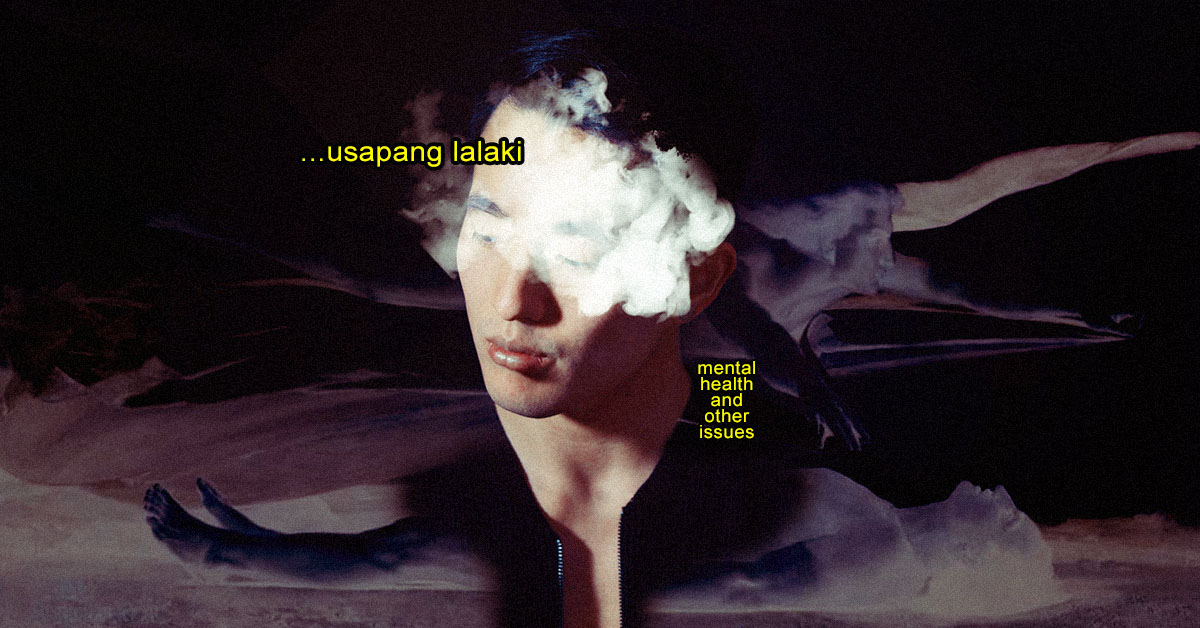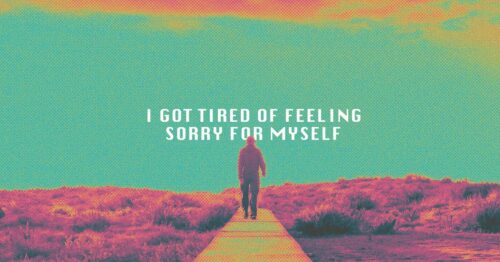Get woke on men’s mental health
Despite the voice of mental health getting stronger and louder and more supported, there’s still a lot of stigma surrounding the likes of depression, bipolar disorder, anxiety and the like. And while we’d like to see everyone on the spectrum equally, we dare say that there is a different stigma surrounding men’s mental health.
Before we begin: Save your claims of anti-feminism and call outs of sexism for the duration of this read and hear us out a little. We aren’t claiming that men have it worse; all we’re saying is that it’s different for them.
Read that again—and read on—before you pick a fight.
RELATED: Three Filipino Men Share Their Thoughts on Toxic Masculinity
I talked to three male friends, all of who have admitted suffering a mental health issue; two of them are diagnosed, the other suffers on the day-to-day like most of us do.
The stigma on men’s mental health is rooted in toxic masculinity
One those friends admitted being part of generation that is “skirting the line between being open about mental health and just living with it.” Growing up in an exclusive boys school, he remembers being expected to stay strong, be brave and act tough—how could you survive otherwise?
There is nothing wrong about being these things—an extra layer of skin is not a bad thing, even if we’re accused of being too sensitive—but the way that these things are forced give the impression that anything of the opposite nature is negative. Being sensitive, emotional and introspective become things to avoid instead of embrace and share.
Being forward-thinking is only half the battle
I will give it to my friends and my generation: We are more forward-thinking than the generations that birthed us. But as much as our minds are open to the changing times, there is so much more to overcome—after all, most of our habits are formed at home.
While it might be a personal choice, my friends most often decide to keep their mouths shut when they struggle. It’s about not wanting those around them to worry, not wanting to be a burden and knowing that everyone around them struggles, too.
So instead of opening up to friends the minute the day turns south or reaching out to parents to say “Hey, maybe I need to see someone about this,” they turned to music and film, and anything else in secret.
If they felt comfortable reaching out, like someone would catch them at the end of conversation without judgement, would things have been different? Most likely.
RELATED: The PH Mental Health Bill: What It Is & What It Should Do
This fear of opening up, however, isn’t based so much on gender as it is the general stigma on mental health altogether. Rather than attack the gender spectrum, my friends admitted it’s mostly an age thing. There is comfort in having being around those who have an appetite for the same amount of content and are willing to take part in a conversation such as this.
But what about the women?
This was meant to be about men’s mental health, but we can’t really make that distinction without touching on women’s struggle, too. If we can specify it for men, we can definitely do the same for women…right?
The boys I spoke to—gentlemen, really—generally say it’s a double-edged sword for us. Yes, we have our groups and we’ve all heard of strangers being there for strangers, but they raised two pretty good points:
- How do you make the distinction between a usual rant and an actual call for help?
- There’s a pressure to be a part of this “sharing is caring” culture and what if we don’t want to take part?
Discussing this is worthy but perhaps another time. The point is that we all have our own battles when it comes to mental health.
RELATED: On Sexism in Sexual and Reproductive Health and Change on the Horizon
There is, however, a shining light at the end of this damn tunnel (that’s honestly a little claustrophobic sometimes): the tides are turning. The discussion of men’s mental health—of mental health in general—is everywhere, we just need to choose to take part of it. And we need to take part of it holistically and properly.
Art Alexandra Lara




















